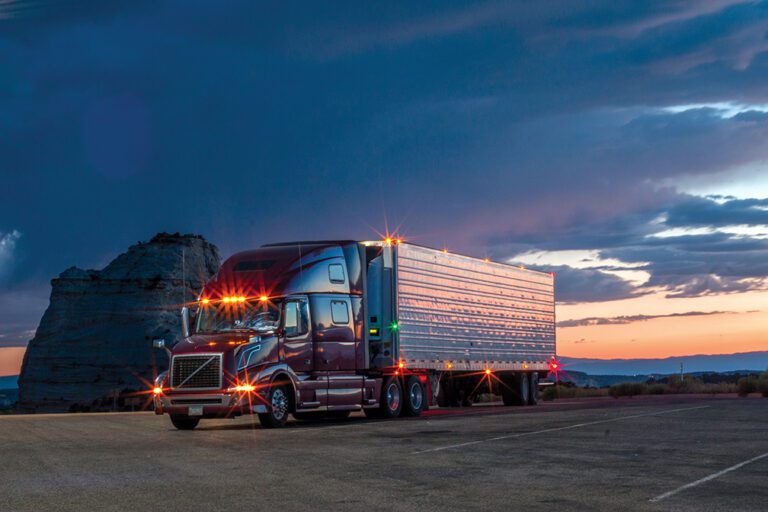Trucking companies differ in the way they present themselves to potential drivers. Some provide lots of information in every ad while others tell a bare minimum, hoping to entice a phone call or an online application. Some try to sway potential drivers with claims of high pay, new(er) trucks or running lanes. Some tout their culture.
If you read or hear phrases like, “We treat our drivers like family” and “You’re more than a truck number” those are references to the carrier’s culture.
This is all great — but keep in mind that the person who created the ad often works for an advertising agency, not the carrier. Even though the ad agency likely works closely with a manager at the trucking company, who obviously would know a lot about the culture … at least in the office. Whether or not those statements actually reflect the day-to-day world in which drivers work might be up for debate.
When speaking with recruiters, it’s important to remember that they work in sales. Like any salesperson, they are evaluated by what they produce; in this case, it’s qualified drivers. Some recruiters are excellent at matching applicant needs with carrier offerings. Others quickly pick up on what applicants want to hear and craft their presentation to meet it. This doesn’t mean they are dishonest, but they sometimes work far away from the “nuts and bolts” of the carrier. Sometimes they present the “company line” in good faith without knowing whether the reality matches.
If you’re looking for a truck driving job, whether it’s your first out of CDL training or you’ve been around the industry, you can improve your chances of finding the right fit by asking the right questions. Here are some to ask:
How will I be compensated?
Dig into rate-per-mile claims. Does that attractive pay rate apply to all miles, loaded miles only, or only loads that deliver to a particular region? Also, is it the actual pay rate or a calculation of mileage pay plus the value of benefits or other factors? If there are restrictions on how to earn the advertised rate, ask about deadhead miles, miles to the next pickup, miles to your home and back. Make sure you understand what you’ll be paid (or not paid) for every mile you drive.
Accessorial pay is a part of your compensation, too. What does the carrier pay for detention, and when does it start? Some carriers might pay after you’ve waited two hours to be loaded or unloaded; for others it might be four hours or more, and some don’t pay anything at all. Will the detention be paid along with the mileage for the load, or is there a policy that you must wait until the customer pays? (And what happens if the customer doesn’t pay?)
Layover is another issue. If you’re empty and a long way from home and the carrier doesn’t have a load for you, will the carrier pay you for that time? Like detention, how long do you have to give them before pay starts? Does the carrier pay even if you use the time for a 34-hour restart? Some don’t.
Some carriers require varying levels of freight handling from their drivers. Find out how often it happens and what the pay rate is for that, too.
What is the policy on road maintenance?
Any maintenance issues that impact your safety or that of others should be dealt with at the nearest location possible. Some carriers also use vendors for oil changes and other routine maintenance. Will you be compensated for the time you spend waiting for the work to be done? More importantly, will you be asked to “limp” unsafe equipment back to a company shop or to a favored vendor that’s far away?
What’s the carrier’s turnover rate?
Simply put, the turnover rate is the percentage of drivers the carrier must replace every year, for any reason. The industry average for long-haul carriers is usually somewhere close to 100%. If you receive a glowing presentation about how wonderful the company is but they’re losing drivers at the same rate (or higher) than everyone else, proceed with caution. Also, be wary of estimates and “ballpark” figures. The managers of the carrier know the turnover rate — they don’t need to guess.
You might also ask about the most common reason drivers leave the company. Many carriers perform exit interviews with employees who are leaving or pay other firms to do this.
What technology does the carrier use to monitor drivers?
Modern telematics make it possible to gather all sorts of information and provide it to the carrier. Many carriers know when you exceed a set speed, stomp on the brake, swerve suddenly and other data. Safety technology such as collision mitigation or lane departure warning systems can save your life, but they also may send a report to your carrier letting them know an incident occurred. Modern video systems can record the view outside the windshield, alongside the truck and even to the rear, and driver-facing cameras also record the inside of the cab. Many drivers view these systems as training tools that help them become better, but some see an invasion of privacy. Whatever your opinion, ask before you hire on.
What is the carrier’s REAL policy for getting home?
Don’t settle for generic statements like, “home on weekends.” Getting home at 8 p.m. Sunday is, technically, “home on the weekend,” but it certainly isn’t a weekend with the family. Rather than asking how often you can expect to get home, find out when you’ll get there and how long you’ll stay.
Do your homework.
When it comes to culture, recruiters aren’t the only source of valuable information. Internet searches often turn up opinions about carriers — but keep in mind that negative reviews are often left by disgruntled former employees with an axe to grind. You’ll only get one side of the story. Ask current drivers you meet on the road or at truck stops and get several opinions.
Trucking can be a tough job, but it’s tougher when you’re stuck at a carrier that doesn’t appreciate you. Get your questions answered before you apply.
Cliff Abbott is an experienced commercial vehicle driver and owner-operator who still holds a CDL in his home state of Alabama. In nearly 40 years in trucking, he’s been an instructor and trainer and has managed safety and recruiting operations for several carriers. Having never lost his love of the road, Cliff has written a book and hundreds of songs and has been writing for The Trucker for more than a decade.












Everything that he said it is the true I was working for a carriers name BZ express they treat you well at the beginning but as soon is possible they star giving you punishment for everything till 1000 one shot they don’t care if you take home money for your family food they lie to a new buyer selling tractors in a really bad conditions and you only work to fix your truck its worse
Great article which raises some great points. I consider myself very fortunate to work for the carrier I do. No nasty surprises, superb and supportive culture and team.